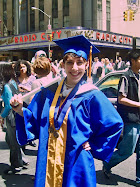I am reading an article by Laurent Dubois, an anthropologist and travel ethnographer. So strongly in my passion did I relate to this section:
“His escape—and his argument for the naturalness of nomadism—were breathtaking to me as a sixteen-year-old, searching, in the suburbs.
Those days of reading were also days for running. I wanted to get out; I was sure that my neighborhood wasn’t real, was too sheltered, was, finally, insane because it caused suffering it ignored. I knew that my school was insane: knew it on those days in May, smelling the air outside, daydreaming, watching those long minutes stretching out as the traffic moved in and out and around the big white office buildings nearby. Kids spent the nights looking for escape in drugs and drinking and driving fast down 3 a.m. roads. Those nights where some of us gathered, and got drunk from the fact that in our wealthy neighborhoods we were danger, that we couldn’t gather anywhere without the cops coming along; in our suburbs, we, the children, were always suspect when we gathered in the parks at night or walked the streets in groups. They were waiting for us to break the glass, and we took them up on it, breaking windows in the schools, hitting the street signs with baseballs bats, running from the police, escaping once more and laughing about it in our basements, only to realize an hour later, when the adrenaline has stopped pumping, that nothing had changed.
I might go into the city, stay out all night, or kiss in the parks which on some nights radiated with sex, but I always came home. We came home again and again; there was no escape from that home. And home had been built twenty years before on farmland; those streets and jobs and shopping malls had all been invented not too long before I was born, planned out just right, and something was closing in on me in that home.
I searched for advice as to how to avoid the settled futures I saw lurking around me. I wanted to escape, to see another reality; I wanted to be able to come back and tell stories of other places, and to understand and criticize this place better. It was a continuity with the nausea I felt in school, the push that made me leave, midday,…the push that took me down to the river, to sit on the rocks…—running now and running later, they were salvations.
It was the promise of this salvation that I thought I saw in the study of anthropology in college a few years later, where I imagined I could make a life out of running and out of the learning that comes from running.”
Running. I am always accused of running away, but I am running towards something. I suppose that learning. So accurately he describes my past. And now I dread of the future:
“But as I have begun to travel through anthropology, I have found that the freedom of travel is not a free space; I do not escape the strictures of the suburbs and of the mindset that made them by going far away. Although I have traveled as I have dreamed, for a long time, of doing and I have found myself doing exactly what I thought an ethnographer was supposed to do, I felt discomfort in that place and doubt about the real value of bringing it back here, back home.”
I can’t even get through the rest of the article. Maybe my understanding of the article symbolizes the journey I am taking. So easily can I understand, sympathize and passionately cry over his first paragraphs, for that is where I currently am in my own life. And the fact that I can’t understand the rest (his discomfort in knowing he can’t escape) must only mirror what I will be going through in the next few years. Fifteen years from now, when I am settled into my career, will I look back on this article and begin to relate more? That is my fear.
Memorial for Saba
13 years ago




No comments:
Post a Comment